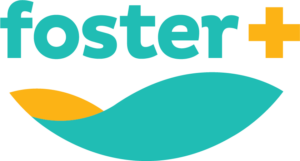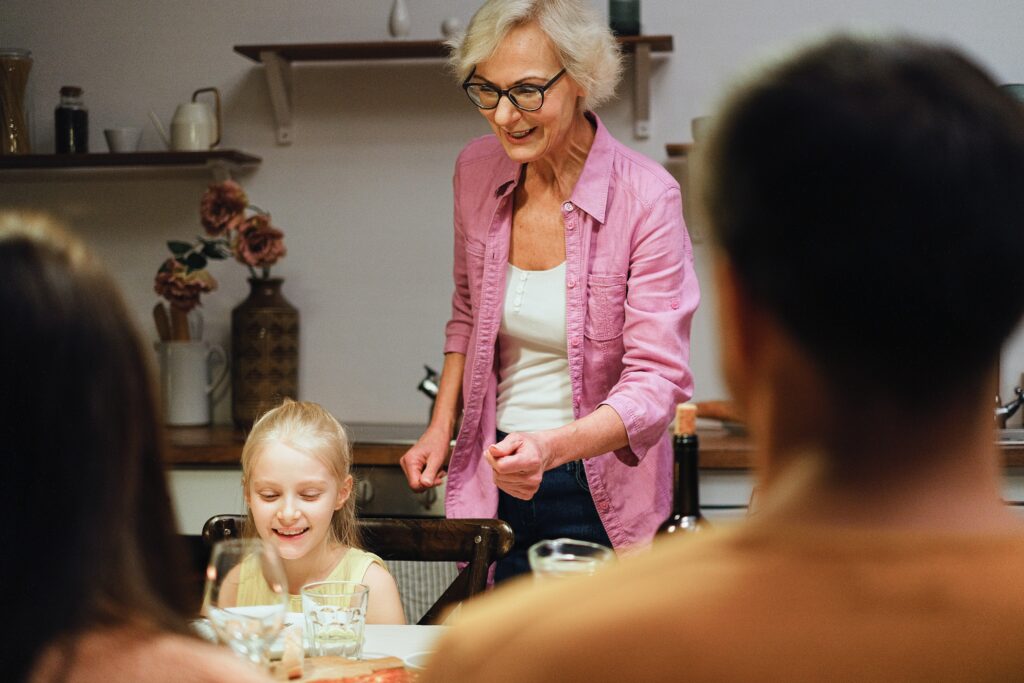Recent data show that 3% of all children in the United States — that’s over 2.5 million kids — are being raised by relatives because their parents aren’t able to care for them.[1] This kind of arrangement is referred to as kinship care. After celebrating Kinship Care Month this September, we wanted to take the time to highlight this vital and sometimes overlooked part of the foster care system.
What is Kinship Care?
According to Child Welfare Information Gateway — a service of the U.S. Department of Health & Human Services — a common definition of kinship care is “the full-time care, nurturing, and protection of a child by relatives, members of their Tribe or clan, godparents, stepparents, or other adults who have a family relationship to a child. The relationship should be respected on the basis of the family’s cultural values and emotional ties.”[2]
For the majority of human history, kinship care has been the norm. When death, poverty, or other tragedies impacted a parent’s ability to care for their child, close family or community members would step in to fill the gap. Despite this longstanding precedent, it is only in the last few decades that kinship care has been officially recognized and incorporated into the child welfare system in the United States.
Types of Kinship Care
While there is no set definition for kinship care, it can generally be broken down into two main categories: informal and formal care.
Informal kinship care occurs when family members or friends assume care of a child without the child officially entering the foster care system. In these informal arrangements, the parents frequently retain legal custody of the child. This lack of legal recognition for the kinship caregiver’s status can make it difficult for them to access certain services and benefits for the kids in their care.
Under the umbrella of informal kinship care is a further category sometimes referred to as voluntary kinship care, or “diversion” care. In these cases, either a court or child welfare agency places a child with kin to prevent the child from entering the foster care system. Therefore, the state does not take legal custody of the child.
Formal kinship care is most similar to the traditional nonrelative foster care with which many people are familiar. In formal kinship care, a child is placed in the legal custody of the state, while the kin has physical custody. A child welfare agency then acts on the state’s behalf to make decisions regarding the child’s well-being. This includes decisions around medical care, schooling, and where the child should live. Kinship caregivers participating in formal kinship care in Oregon become licensed and receive access to services and benefits offered to traditional foster parents.
Why is Kinship Care Important?
One of the core tenets of foster care is to use the least traumatic and disruptive intervention needed to provide kids with a safe, nurturing environment. For this reason, kinship care has become the preferred placement option for foster children.
Here are just some of the benefits of kinship care:
- Less disruption in the child’s life. Having extended family members step in to support a young person when their home situation is unsafe or untenable serves as a great protective factor. Often there’s an existing relationship between the child and the family member caring for them, which provides a level of comfort and stability. Kinship care can also provide greater continuity in the child’s life, hopefully allowing them to remain in their school and stay connected to their existing social circles.
- The child’s cultural identity is sustained. Family members are often able to understand and provide for a child’s cultural needs in ways that a nonrelative can’t. As stated in a recent factsheet from Child Welfare Information Gateway, “Living with kin helps children preserve and strengthen their cultural identities by maintaining connections to their communities and culture, including language, food, holidays, clothing, and more.”[4]
- Greater behavioral outcomes and stability. Children in kinship placements not only move from home to home less than children in nonrelative foster care settings — they also experience fewer behavioral issues.[5]
Kinship Care and Foster Plus
The ultimate goal of foster care is to return kids to their families of origin whenever possible. This is why placements through Foster Plus agencies are intended to be time-limited. Our agencies provide extra support and treatment for youth who have greater behavioral, mental health, or other needs. When appropriate, we try to engage a child’s family members to support them during their placement and beyond. Through all this work, the hope is that kids can either move to a lower level of foster care or return back home to their family of origin.
What resources are available to Kinship caregivers?
Many kinship caregivers are unprepared when called upon to care for grandchildren or other relatives. For grandparents — the primary kinship caregiver type — being on a fixed income can make it difficult to provide for a new member of their household. Kinship caregivers may also have to navigate unhealthy family systems and unclear boundaries with a child’s biological parents.
Managing all of these challenges is made even harder by the fact that kinship caregivers often have less access to the financial and educational resources available to nonrelative foster parents in traditional foster care. To address this disparity, states have started to develop “kinship navigator” programs. These Navigators help bridge the gap by serving as an information and referral resource for kinship caregivers looking to get connected with vital services.
Here in Oregon, Greater Oregon Behavioral Health, Inc. (a Foster Plus partner agency) worked in partnership with DHS Child Welfare to create our state’s own kinship navigator program. Non-parent relative caretakers can use Oregon Kinship Navigator to access a variety of helpful resources, including:
- Educational resources and guides
- Assistance with legal issues
- Connections to benefits and organizations that can provide additional support
- Tips for navigating DHS Child Welfare
- Online support groups and parenting support
What can you do to support Kinship caregivers?
If you know someone in your life who’s currently caring for a relative, whether in an informal or formal setting, help connect them to Oregon Kinship Navigator if they haven’t already. Gaining access to these resources and support can have a profoundly positive impact on them and the kin they’re caring for.
You can also help kinship caregivers by becoming a relief parent. Stepping in to raise a family member can be a lot of work, especially if a child has higher needs. When you work with Foster Plus agencies to become a relief parent, you give foster parents the gift of much-needed time off by opening your home to provide care for a child for just a day or two at a time. It’s a great way to make a difference and support full-time foster parents and the kids in their care. If you’re interested in becoming a relief parent, visit the Foster Plus website to learn more.
Sources
[1] “Children in kinship care in the United States.” Kids Count Data Center: A project of the Annie E. Casey Foundation. Accessed September 28, 2022. https://datacenter.kidscount.org/data/tables/10455-children-in-kinship-care#detailed/1/any/false/2479,2097,1985,1757/any/20160,20161.
[2] “About Kinship Care.” Child Welfare Information Gateway. Accessed September 28, 2022. https://www.childwelfare.gov/topics/outofhome/kinship/about/.
[3] “About Us.” Oregon Kinship Navigator. Accessed September 28, 2022. https://oregonkinshipnavigator.org/about/.
[4] “Kinship Care and the Child Welfare System.” Accessed September 28, 2022. https://www.childwelfare.gov/pubpdfs/f_kinshi.pdf.
[5] The Annie E. Casey Foundation. “What Is Kinship Care?” The Annie E. Casey Foundation. Accessed September 28, 2022. https://www.aecf.org/blog/what-is-kinship-care.





